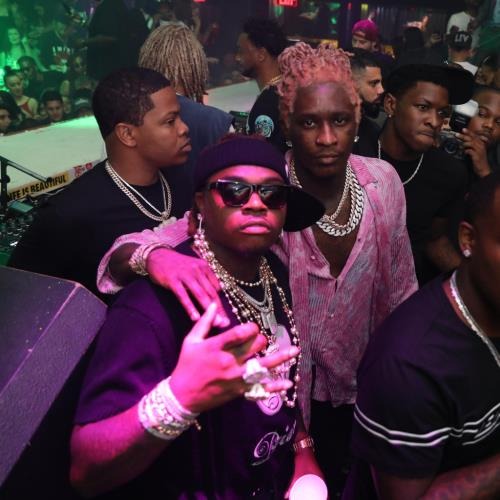News
Young Thug Explains Why He Can Not Be Around Gunna

Young Thug Explains Why He Can Not Be Around Gunna
The Hook: When Friendship Meets the Fire of Fame
Hip-hop thrives on loyalty, energy, and collaboration—but what happens when the bond between two artists shatters under the spotlight? Young Thug, a figure who has long been seen as a pioneer of Atlanta’s trap sound, recently explained why he can no longer be around Gunna, his longtime collaborator and once-close brother-in-arms. His reasoning is more than gossip; it’s a reflection of the tensions between music, law, loyalty, and the harsh glare of public scrutiny.
A History of Brotherhood: Thug and Gunna’s Rise Together
Young Thug and Gunna weren’t just labelmates; they were partners in crafting a new wave of Atlanta rap. Their collaborations blurred lines between melodic rap and street storytelling. Hits like Hot and Pushin P weren’t just chart-toppers—they became cultural markers, defining moments for a new generation of hip-hop fans.
In the streets and in the studio, the two artists projected the image of unshakable loyalty. Their music carried a sense of unity, with Gunna often referring to Thug as a mentor, and Thug championing Gunna’s growth. To see this bond fracture feels almost like watching a dynasty fall apart.
The Rift: Why Young Thug Keeps His Distance from Gunna
When Young Thug explains why he cannot be around Gunna, it isn’t framed as casual beef—it’s tied to the deeply complicated YSL RICO case. For Thug, who remains entangled in legal battles, proximity to Gunna represents more than a personal discomfort; it represents blurred lines between survival, reputation, and trust.
The allegations of “snitching” that shadow Gunna, whether fair or not, ripple through hip-hop culture. In the world Thug inhabits, perception is reality, and loyalty is currency. His choice to distance himself speaks less to hatred and more to the unspoken rules of a genre that has always placed brotherhood on the same pedestal as artistry.
Culture at a Crossroads: Loyalty, Law, and Hip-Hop’s Unwritten Rules
The Young Thug–Gunna situation isn’t just about two rappers. It highlights a larger cultural conversation in hip-hop: what does loyalty look like when legal systems and industry pressures collide?
- The “No Snitching” Code: Long ingrained in rap culture, this unwritten rule dictates how artists must move within and outside of the law.
- Public Image vs. Personal Reality: While fans want the music, artists are forced to navigate a narrative where betrayal or silence can redefine their careers.
- Generational Tensions: Younger fans often question whether these codes of the street should still define an art form that has become global.
The Music We Almost Lost
Beyond the controversy, fans mourn the creative partnership that once gave us anthems that defined summers and playlists. Imagine what could have been: more joint albums, more tours, more iconic videos. Instead, fans are left with fragments—a reminder of how fragile even the strongest artistic bonds can be.
If You’re Attending Young Thug’s Upcoming Shows
For those following Thug’s career despite his legal struggles, tour stops are still a celebration of his resilience. If you’re traveling to see him live:
- Transportation: Most venues are accessible via major ride-sharing apps and metro lines. Book early on high-profile nights.
- Where to Stay: Nearby boutique hotels often sell out quickly; budget travelers can find hostels or short-term rentals within walking distance.
- Local Vibe: Check out nearby record stores and underground venues—many host afterparties inspired by Thug’s music.
The Future of Thug and Gunna: Beyond the Divide
Will the bridge ever be rebuilt? In hip-hop, history has shown us that today’s rivals can be tomorrow’s collaborators. Yet with court cases ongoing and reputations hanging in the balance, reconciliation may not be near. Fans can hope, but the scars of broken trust in hip-hop run deep.
Conclusion: More Than Music, It’s a Mirror of Culture
Young Thug’s decision to separate from Gunna isn’t just an industry headline—it’s a moment that forces fans, artists, and culture at large to confront what loyalty means when tested under fire. It leaves us with haunting questions: Can art transcend the weight of reputation? Can friendships survive when law and loyalty collide?
One thing is certain: as hip-hop continues to evolve, the story of Thug and Gunna will remain a cautionary tale—a reminder that behind every beat and bar lies a fragile human connection.
What do you think? Should loyalty still define hip-hop in 2025, or is it time for the culture to evolve? Share your thoughts and keep the conversation alive.
